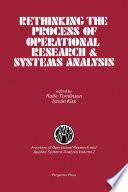
Frontiers of Fundamental Physics
The Olympia conference Frontiers of Fundamental Physics was a gathering of about hundred scientists who carryon their research in conceptually important areas of physical science (they do "fundamental physics"). Most of them were physicists, but also historians and philosophers of science were well represented. An important fraction of the participants could be considered "heretical" because they disagreed with the validity of one or several fundamental assumptions of modern physics. Common to all participants was an excellent scientific level coupled with a remarkable intellectual honesty: we are proud to present to the readers this certainly unique book. Alternative ways of considering fundamental matters should of course be vitally important for the progress of science, unless one wanted to admit that physics at the end of the XXth century has already obtained the final truth, a very unlikely possibility even if one accepted the doubtful idea of the existence of a "final" truth. The merits of the Olympia conference should therefore not be judged a priori in a positive or in a negative way depending on one's refusal or acceptance, respectively, but considered after reading the actual of basic principles of contemporary science, new proposals and evidences there presented. They seem very important to us.
- ISBN 13 : 1461525608
- ISBN 10 : 9781461525608
- Judul : Frontiers of Fundamental Physics
- Pengarang : M. Barone, F. Selleri,
- Kategori : Science
- Penerbit : Springer Science & Business Media
- Bahasa : en
- Tahun : 2012
- Halaman : 601
- Halaman : 601
- Google Book : http://books.google.com/books?id=P4jkBwAAQBAJ&dq=intitle:fundamental+of+logic&hl=&source=gbs_api
-
Ketersediaan :
For him, as for the C.I., quantum-mechanical description is restricted only to
statements about phenomena: the so called restrictive interpretation. This was
the general epistemological presuppositions for the elabotation of a threevalued
logic.








